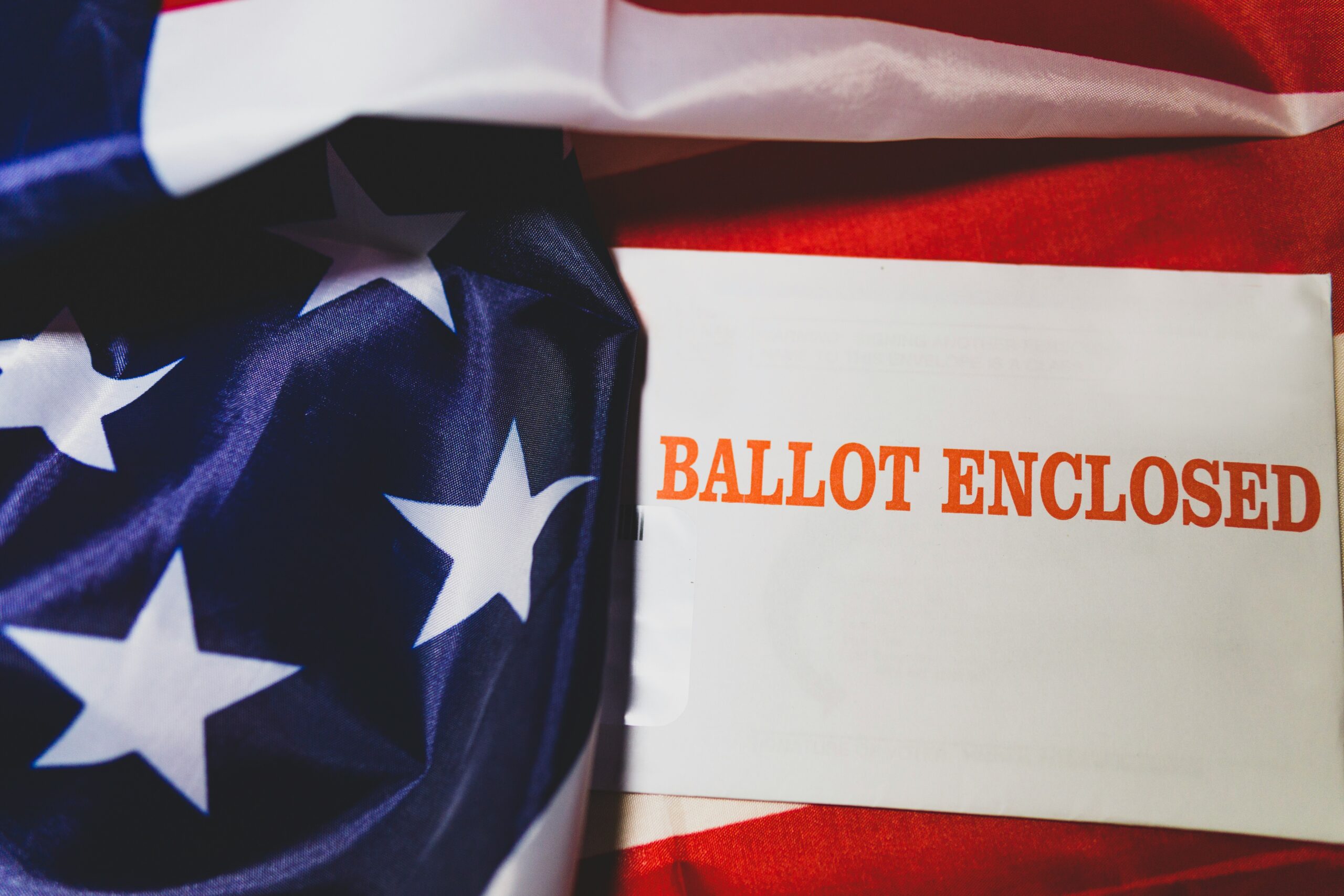Election seasons are periods of heightened tension – especially within our current political climate. Political debates, rallies, and intense media coverage have been filling the public sphere for quite some time now. These are times when emotions run high, as individuals express their beliefs and hopes for the future.
However, for some, the pressures of the political landscape have a far more personal and terrifying impact. Domestic violence, a pervasive issue across societies, often sees a disturbing increase during these times. This increase isn’t just about the general stress associated with elections; it’s also about the ways abusive partners can manipulate and control their victims, including coercing them into voting a certain way.
Each election, survivors of intimate partner violence face unique barriers that can prevent them from voting.

During election seasons, the atmosphere in households can become charged, especially when partners hold differing political views. The intensity of public discourse can exacerbate existing tensions within relationships. Stressful conversations about politics can serve as triggers for violent or controlling behavior, particularly for those with an already established history of abuse. Elections can also amplify existing power dynamics, providing abusive partners with another tool to exert control over their victims.
Research has shown that times of societal stress, such as economic downturns or natural disasters, often see a spike in domestic violence cases. Elections, with their accompanying anxiety, divisiveness, and uncertainty, can similarly act as catalysts. For abusive partners, the charged political environment can become a pretext to exert even more dominance over their victims, often using the election itself as a means of control.
One of the most insidious ways abusive partners may exert control during election seasons is by coercing their partner into voting a certain way. In a healthy relationship, partners may discuss politics and even disagree without fear. However, in abusive relationships, political disagreement can become dangerous. An abusive partner may try to force their beliefs onto their partner, making threats or using violence to ensure compliance. This coercion can take many forms, from verbal intimidation and emotional blackmail to physical violence and surveillance.
For some, the mere act of voting differently from their partner can be seen as an act of rebellion, leading to severe consequences. The abusive partner may view their victim’s political stance as a threat to their control or a challenge to their authority. In these scenarios, the act of voting becomes not just a civic duty but a dangerous ordeal. Victims may feel they have no choice but to comply with their abuser’s demands to avoid conflict or harm.
It’s crucial to stress that voting is a private matter. No one is with you inside of the ballot box. In the United States, the right to a secret ballot is a cornerstone of the democratic process. This means that when voting in person, no one can see how you vote. In an abusive relationship, this privacy can be a lifeline. Even if an abusive partner pressures their victim to vote a certain way, the victim can still vote according to their own conscience in the privacy of the voting booth.
Voting in person can provide a degree of safety and autonomy that voting by mail may not. When you vote in person, you do so in a private booth, where no one, not even the election officials, can see your ballot. This privacy ensures that your vote reflects your true beliefs and choices, free from external influence or coercion. If you’re in an abusive relationship, knowing this can be empowering. It’s a reminder that, despite the control an abusive partner may exert in other areas of life, your vote is ultimately your own.
While voting by mail is a convenient and essential option for many, it can pose specific dangers for those in abusive relationships. Voting by mail requires receiving and returning a ballot, processes that an abuser can easily monitor. In such cases, an abusive partner may attempt to “manage” how their partner votes, using surveillance and coercion to ensure that the mail-in ballot reflects their own political preferences.
In some situations, abusers may even fill out the ballot for their victim or force them to vote under direct supervision. This level of control is a violation of both personal autonomy and the democratic process. It strips the victim of their right to participate in elections freely and safely, further entrenching the power imbalance in the relationship.
For victims of domestic violence, the act of voting by mail can become a tool of control and fear rather than an expression of freedom. Therefore, it’s crucial to understand the risks and explore options that can protect the victim’s autonomy, such as voting in person when it is safe and possible to do so.

Safety Planning for Voting
If you are in an abusive relationship and concerned about how to vote safely, there are steps you can take to protect yourself:
- Vote In Person: If it’s safe to do so, consider voting in person. Remember that your vote is private, and you have the right to choose freely once inside the voting booth. It is also recommended to vote when the abuser is busy (like at work or away from the home) if possible.
- Early Voting: Many areas offer early voting. This option can provide more flexibility, allowing you to choose a time to vote when it’s safe.
- Seek Support: Reach out to domestic violence support organizations, like Options for advice. They can provide guidance on how to navigate voting safely and may offer additional resources for protection. You can also ask a friend to support you by having them drive you to the polls.
- Research ahead of time: If it is safe for you to do so, researching political candidates and issues to be voted on ahead of time will make the process of voting significantly quicker.
- Practice self-care before and after voting: Take a moment to yourself to calm your nerves and relax before and after casting your ballot.
- Voting by Mail Safely: Consider your vote-by-mail options. For some, this may be the most convenient and safest way to vote. Particularly if you think your abusive partner may keep you from voting in-person.
The democratic process depends on the free and private participation of every individual. When someone is forced to vote a certain way under the threat of violence or control, it undermines the integrity of elections and the principles of democracy itself. Every person deserves the right to vote according to their conscience, free from intimidation or fear.
If you need any additional information, have a question, or a concern, feel free to reach out to Options at our 24-hour toll-free helpline 800-794-4624. You can also reach an advocate via text by texting HOPE to 847411 or click 24-Hour Chat with Options.
Written by Anniston Weber
This project was supported by subgrant number 24-VAWA-07 awarded by the Kansas Governor’s Grants Program for the Office on Violence Against Women, U.S. Department of Justice’s STOP Formula Grant Program. The opinions, findings, conclusions, and recommendations expressed in this publication/program/exhibition are those of the author(s) and do not necessarily reflect the views of the Office of the Kansas Governor or the U.S. Department of Justice.


